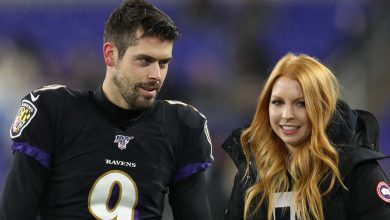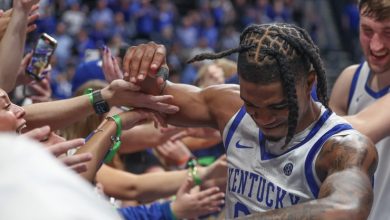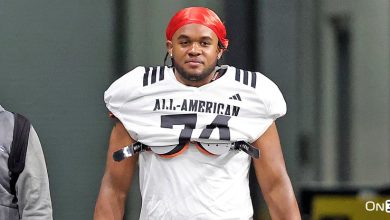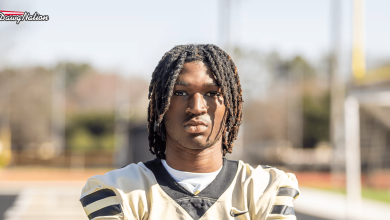The Athletic: How the New Orleans Super Bowl blackout almost changed the history of the Ravens, 49ers, and NFL
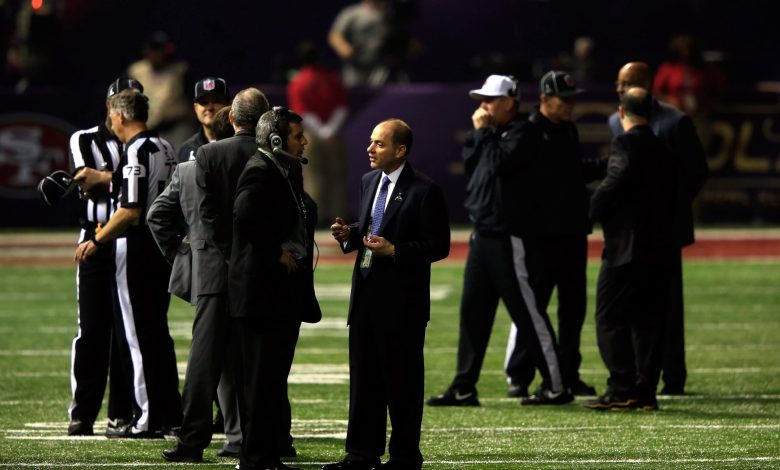
The Super Bowl is one of the most pivotal events in American sports. It’s the culmination of a season filled with highs, lows, and storylines that captivate the attention of millions of viewers worldwide. For two teams, it represents the pinnacle of their journey—a chance to etch their name into NFL history with the ultimate prize. But sometimes, the course of a game, and perhaps even the history of the teams involved, can be altered by events completely out of the control of the players, coaches, and fans. One such event occurred during Super Bowl XLVII in New Orleans—an event that nearly changed the outcome of the game and, in turn, altered the trajectory of the Baltimore Ravens and the San Francisco 49ers.
On February 3, 2013, the Ravens faced the 49ers in a Super Bowl that would go down in history for many reasons, including the dramatic storyline of the game itself. The Ravens, led by veteran quarterback Joe Flacco, were attempting to claim their second Super Bowl title in franchise history. Meanwhile, the 49ers, under second-year head coach Jim Harbaugh and with quarterback Colin Kaepernick at the helm, were aiming to add a sixth Super Bowl championship to their storied legacy.
While the game featured memorable moments—from Flacco’s stellar passing performance to Kaepernick’s valiant comeback efforts—the most unexpected event came midway through the third quarter, when the lights in the stadium went out. The infamous Super Bowl blackout, as it would later be called, plunged the stadium into darkness for nearly 35 minutes, halting play, interrupting the flow of the game, and sending shockwaves through the fan base. In the aftermath of the blackout, the game would become one of the most controversial and hard-fought Super Bowls in recent memory.
In hindsight, the blackout had more than just a physical impact on the game—it may have fundamentally shifted the trajectory of both teams’ futures and, potentially, the broader history of the NFL itself. Let’s break down how the blackout in New Orleans almost changed the course of history for both the Baltimore Ravens and San Francisco 49ers, and how it became a turning point in Super Bowl XLVII.
The Context: Ravens and 49ers On the Verge of Glory
When the Baltimore Ravens and San Francisco 49ers took the field on that fateful day in February 2013, each team had its own unique narrative heading into the Super Bowl. The Ravens were a team with a legacy built on strong defense and an established quarterback in Joe Flacco. They had already defeated some of the league’s top teams in the playoffs, including a dramatic victory over the Denver Broncos in the AFC Divisional Round. But the Ravens were underdogs heading into the Super Bowl, with the 49ers emerging as the favorites.
The 49ers, on the other hand, were fresh off a season of resurgence under coach Jim Harbaugh, and the team was led by the dynamic dual-threat quarterback Colin Kaepernick. Kaepernick had taken over as the starting quarterback midway through the season, and his electric style of play had sparked an offensive transformation for the 49ers. This was a team built for the future, with young, talented players and a coach who had quickly established himself as one of the league’s most innovative minds. The 49ers were aiming to capture their sixth Super Bowl title, tying them with the Pittsburgh Steelers and Dallas Cowboys for the most championships in NFL history.
From the outset, the game was a tale of two halves.
Flacco’s Stellar Play and the Ravens’ Early Lead
The Baltimore Ravens came out firing in the first half of Super Bowl XLVII. Joe Flacco was outstanding, making precise throws and taking advantage of key plays from his wide receivers, notably Anquan Boldin and Jacoby Jones. The Ravens established a commanding 21-6 lead at halftime, with Flacco throwing three touchdowns and asserting himself as the game’s dominant quarterback. At that point, the Ravens appeared to be in control, with their defense playing well and Ray Lewis leading the charge.
The 49ers, meanwhile, struggled to get into a rhythm offensively in the first half. Kaepernick’s inexperience on the biggest stage showed, and the Ravens’ defense did a solid job of containing his mobility while limiting the big-play opportunities that had become a trademark of San Francisco’s offense. It seemed as though the Ravens were poised to win their second championship and that a Super Bowl victory was just a matter of time.
The Blackout: A Game-Changing Moment
As the third quarter began, the Ravens were still leading by 15 points and appeared on the brink of taking control of the game. However, just as momentum seemed to be building, the unexpected happened. The lights in the stadium suddenly went out.
At first, it was unclear what had happened. Fans in the stadium were left in the dark, and for several moments, it seemed as though a technical glitch might delay the game for only a few minutes. But as time passed, it became clear that this was no ordinary malfunction. The power outage—which originated from a failure in one of the stadium’s electrical circuits—plunged the stadium into near-total darkness. The game was delayed for more than 34 minutes as officials worked to restore power.
This delay would have a profound impact on the flow of the game.
How the Blackout Affected the Ravens
While the Baltimore Ravens were leading at the time of the blackout, the sudden disruption to the game proved to be a momentum killer. The Ravens had been playing well, but the extended break in play allowed the 49ers to regroup and re-strategize. The team’s offense, which had been stagnant, was given time to adjust and refocus. Meanwhile, the Ravens, who had enjoyed a substantial lead, were forced to cool down and try to refocus themselves after the delay.
In interviews following the game, several Ravens players admitted that the blackout affected their rhythm. The Ravens’ offense, which had been firing on all cylinders, struggled to regain the intensity it had before the lights went out. As a result, the 49ers were able to capitalize on the momentum shift.
How the Blackout Benefited the 49ers
On the flip side, the San Francisco 49ers found themselves in a much better position after the blackout. Jim Harbaugh, a fiery competitor and strategist, was able to use the break to make adjustments to his team’s approach. Colin Kaepernick had been struggling in the first half, but the extra time allowed him to reset mentally. When play resumed, Kaepernick came out with a renewed sense of focus and urgency.
Kaepernick began to connect with his receivers, and the 49ers’ offense started to click. They scored a touchdown, narrowed the deficit, and started mounting a comeback. The 49ers’ defense also began to step up, forcing key turnovers and keeping the Ravens from scoring further. The momentum had swung completely in favor of the 49ers, and they were quickly back in the game.
The 49ers’ rally was a testament to the power of the blackout. Had the game continued without interruption, there is a strong argument to be made that the Ravens might have been able to finish out their victory, given the dominant first-half performance. But the break allowed the 49ers to find their footing, and they closed the gap dramatically, setting the stage for a tense finish.
The Final Moments of the Game
Despite the momentum swing, Joe Flacco and the Ravens remained resilient. Flacco threw another key touchdown pass to Jacoby Jones to extend the lead, and the Ravens’ defense was able to withstand a late charge by the 49ers. Ultimately, the Ravens held on for a 34-31 victory, securing their second Super Bowl title in franchise history. Joe Flacco was named the game’s MVP after throwing for 287 yards and 3 touchdowns.
The San Francisco 49ers, despite their comeback efforts, fell just short. Colin Kaepernick and the 49ers’ offense were unable to find the end zone in the game’s final minutes, and the Ravens secured the win. Still, it was a Super Bowl that left a lasting impact on both teams—and on the NFL as a whole.
The Aftermath: How the Blackout Changed History
Had the blackout not occurred, it’s conceivable that the Baltimore Ravens would have completed their victory in a more convincing fashion. The extended break gave the 49ers a chance to regroup and mount a comeback, and the Ravens’ inability to maintain their momentum in the second half suggests that the lights-out moment was a true turning point in the game.
For the 49ers, the game became a near-miss. They went on to build a strong roster in the following years, but the loss to the Ravens in Super Bowl XLVII haunted them, especially because of how close they had come to capturing a championship. Colin Kaepernick never returned to the Super Bowl, and the 49ers experienced a dramatic downturn after that season, unable to recapture their previous level of success.
For the Ravens, Super Bowl XLVII represented a crowning achievement for a team built around its defense and an unheralded quarterback in Joe Flacco. However, it’s possible that the 49ers’ failure to complete their comeback played a role in the Ravens’ ability to finish out their Super Bowl window. The Ravens’ 2013 season was strong, but they would never again reach the same heights as they did in the 2012 season.



